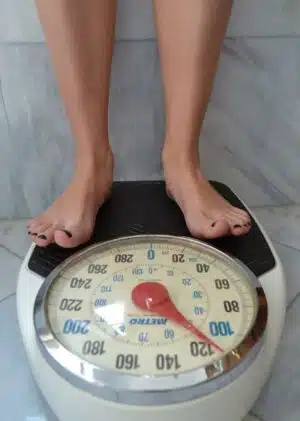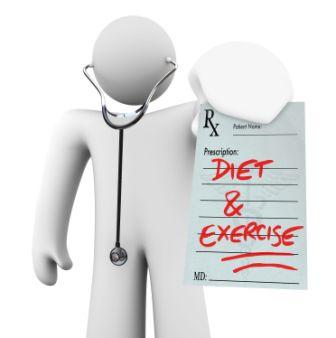You’ve tried practically every “diet” there is, yet you still haven’t lost any weight. Or perhaps you’ve lost weight only to gain it back quickly. One reason may be because you’re buying into common weight loss myths.
It feels like you’re caught in an endless cycle that you will never be able to overcome.
On top of that, there’s a ton of free advice available in the media these days, and if you take it literally, it could really hinder your efforts to lose weight. People who experience this kind of frustration may feel they are “doomed to remain overweight for life.”
This isn’t true.
Most likely, you simply lack the knowledge necessary to enable you to be successful in achieving your weight loss goals. It’s easy to feel like you’re drowning because there are so many diet and weight loss misconceptions out there. But making the distinction between fact and myth and using knowledge to your advantage is the first step toward success.
Below are 5 common weight loss myths that could be sabotaging your goals.
WEIGHT LOSS MYTHS #1
Skipping Meals Is a Good Idea
You might believe that being on a diet involves skipping meals and snacks and going without food all day. But that only results in agitation, frustration, and finally giving up your diet and quickly gaining weight again.
This idea suggests that cutting calories throughout the day will result in weight loss. In reality, you will probably consume at least as much, if not more.
Plus, your blood sugar levels will fall if you skip a meal.
In general, hunger is a sign of low blood sugar and as a result, if hunger pangs strike, you end up eating quickly and possibly making bad food choices.
This can be avoided if you can regulate your blood sugar and curb your hunger by eating several smaller meals throughout the day.
WEIGHT LOSS MYTHS #2
 Eating Late At Night Makes You Fat
Eating Late At Night Makes You Fat
Your body doesn’t determine your weight based on WHEN you eat. All that matters is how much you eat. Figuring out how many calories you are taking compared to how much you are burning is crucial. You must strike the right balance between how much you eat and how much you burn.
Although strictly speaking our metabolism does slow down a small bit during the night, the following is still true – if you take in more calories than you burn, then the extras will be stored as fat and you’ll gain weight. That’s true whether you eat at night or not.
But if you decide to wolf down 500 calories over your daily value right before you go to bed, then obviously you’re not going to burn them while you are sleeping so your body will store it as fat.
It’s okay to snack after the sun goes down, but if you do, be sure your choices are healthy and nutritious.
WEIGHT LOSS MYTHS #3
Cutting Out Fat Helps You Lose Weight
Avoiding foods with a lot of dietary fat may seem sensible if you want to be trim and toned. But not all fats are created equal.
Losing weight is not achieved by avoiding fat. In fact, it often causes weight gain. According to a recent study, eating foods with healthy fats doesn’t make you fat; on the contrary, they can boost your metabolism and aid in weight loss.
While you should obviously stay away from fast food and fried foods that are loaded with saturated or, even worse, trans-fats – your body needs healthy fats to function properly.
Healthy fats, such as avocadoes, extra virgin olive oil, ground flax seeds, hemp seeds, walnuts, and wild salmon – are excellent for the health of the skin and brain, contain anti-inflammatory properties, increase satiety, and supports weight loss.
WEIGHT LOSS MYTHS #4
 Carbs Make You Fat
Carbs Make You Fat
People mistakenly believe that carbohydrates are the ‘diet devil’ and are the main culprit that causes weight gain. Far from it.
Low-carb diets can actually help in weight loss, and in fact, whole foods that are high in carbs are very healthy for you. Whole foods such as sweet potatoes, quinoa, brown rice, whole-wheat bread, cereal, and pasta can provide iron, fibre, and other important nutrients.
Whereas cutting off all carbohydrates can make you gain weight because you won’t be getting the nutrient-dense fibre that has been shown to aid in weight loss.
WEIGHT LOSS MYTHS #5
You Can Target Trouble Spots
Maybe your thighs or arms are really bothering you and you want to get rid of the weight there as soon as possible. Or perhaps you want to quickly get rid of the ‘spare tyre’ around your midriff so you slave doing 200 sit-ups a day.
Bad news I’m afraid.
Fat is lost evenly throughout the body. You can’t focus on one body part and only work it in an attempt to reduce that fatty area. Although it’s true that eating the right meals and exercising regularly will help you lose weight overall, however, you can’t predict where the fat will come off.
Since everybody is unique, it’s impossible to use a diet to specifically target fat removal from particular body parts.
You must concentrate on general fitness – aerobic exercises, strength training, healthy eating, and more – to help a trouble spot. Only in that way can additional fat be lost.
Additionally, building lean muscle through strength training can improve your metabolism, helping you burn more calories even at rest. While spot reduction is a myth, toning your muscles in those areas can help create a more sculpted appearance as you lose weight overall.
Another important factor is consistency. Many people give up on their fitness routines because they expect immediate results. However, sustainable weight loss requires time, dedication, and patience. By sticking to a regular exercise schedule and balanced diet, you’ll start seeing gradual improvements. Celebrate small milestones along the way to stay motivated and focused on your long-term goals.
A good balanced and organic diet – free from processed sugars, fats, flours and oils; regular exercise; positive emotional health; adequate rest; less high-tech gizmos omitting radiation and a relatively low-stress lifestyle are needed to keep our health in top-notch and prevent you from becoming a statistic.
The Bottom Line
If you’re attempting to lose weight, you may be familiar with some or all of these myths and even believe in them.
Yes, losing weight is tough. Our bodies are equipped to absorb and retain energy because they were designed to survive in leaner times.
While most foods are not inherently unhealthy, it’s best to limit your intake of high-sugar and high-fat foods. The effective approach to losing weight is gradual, with realistic changes to your diet and exercise routines.
Have you heard or tried any of these weight loss myths before? If so, which ones? Have you had much success in keeping the weight off? I would love to hear your comments and thoughts…And if you liked the post, feel free to share!
Peace & blessings
Teresa




